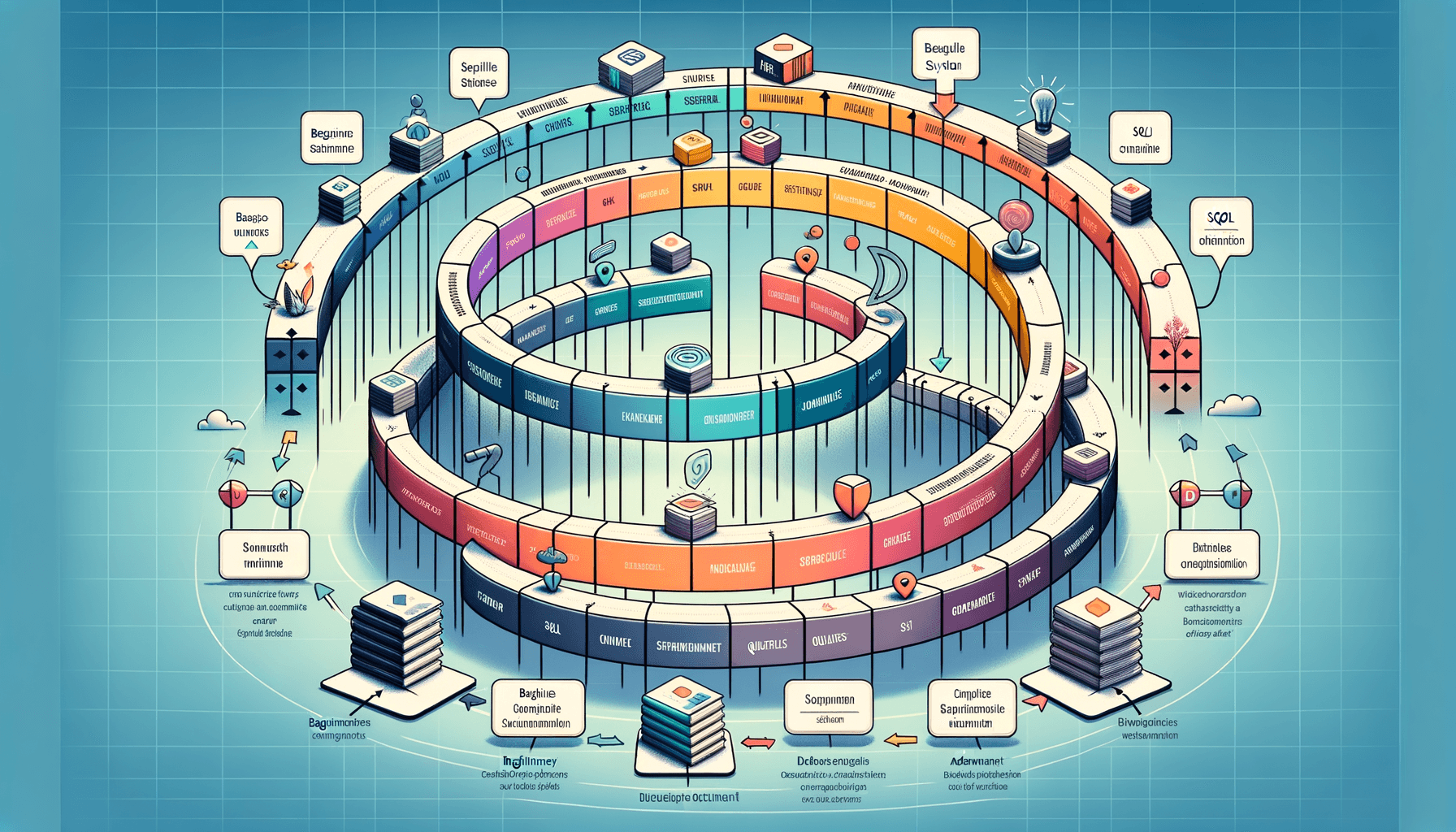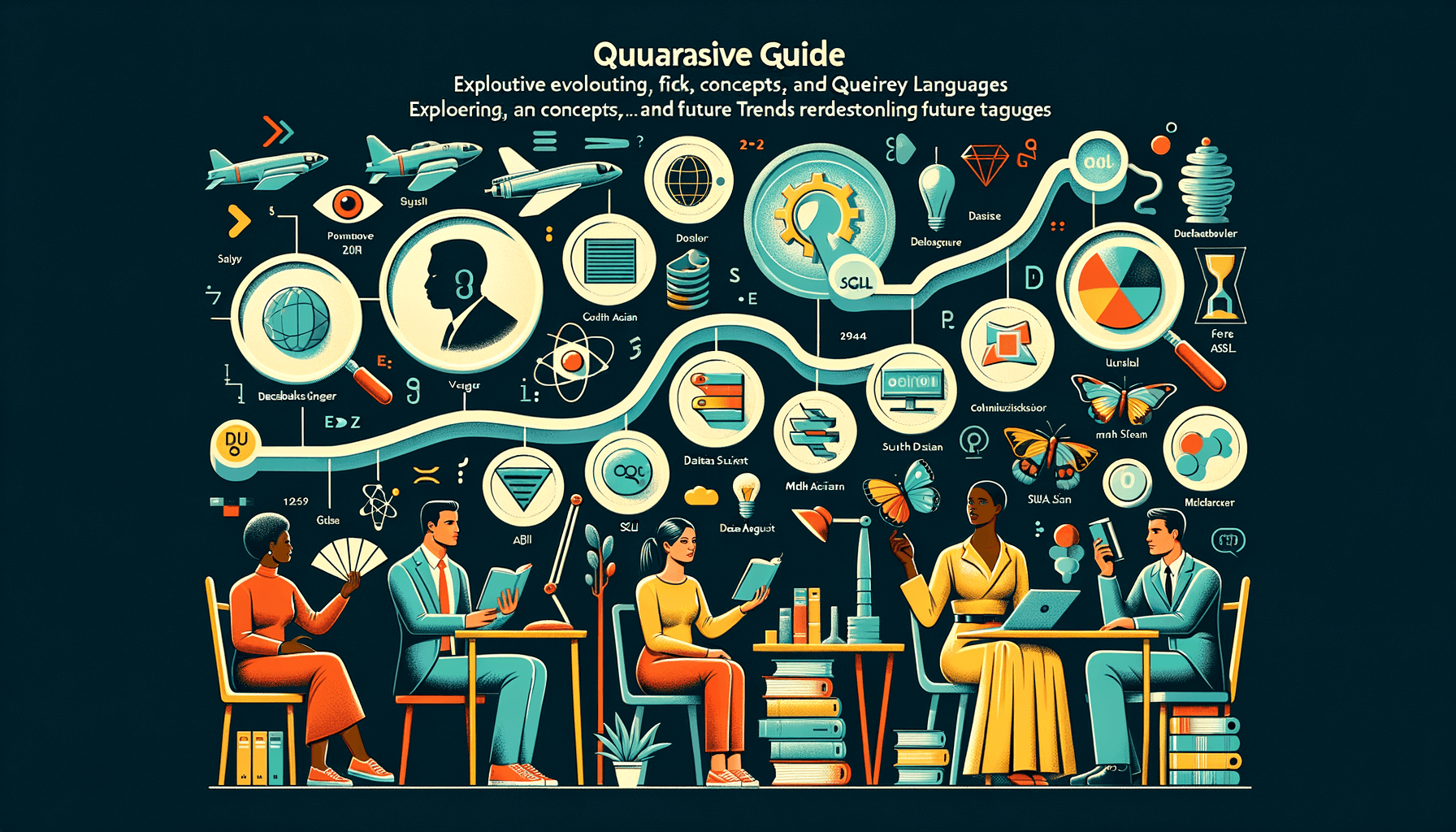A big variety of articles and resources

How Long Does It Take to Learn SQL: A Comprehensive Guide
 Sia Author and Instructor
Learn SQL
Sia Author and Instructor
Learn SQL
8 minute read
Learning SQL can open up many job opportunities and make you more valuable in many industries. But how long does it take to become skilled at SQL? This guide will help you understand the different factors that affect how quickly you can learn SQL, from beginner to expert levels.
Key Takeaways
- The time it takes to learn SQL varies based on your previous programming experience and how much time you can dedicate to studying.
- Basic SQL concepts like understanding databases and fundamental commands can be learned relatively quickly.
- Intermediate skills, such as joins, subqueries, and optimization techniques, take more time and practice to master.
- Advanced SQL skills, including complex queries and database design, require a deep understanding and can take much longer to learn.
- Practical experience through projects and continuous learning is crucial for mastering SQL and keeping your skills up-to-date.
Factors Influencing the Time to Learn SQL
Prior Programming Experience
Our previous experience with programming can greatly affect how quickly we learn SQL. If we already know another programming language, we might find SQL easier to pick up. This is because we are already familiar with concepts like variables, loops, and functions. Having a background in programming can shorten our learning time significantly.
Learning Resources
The quality and type of learning resources we use also play a big role. There are many ways to learn SQL, such as online courses, books, and tutorials. Some resources are more beginner-friendly than others. Choosing the right materials can make our learning process smoother and faster.
Time Commitment
How much time we dedicate to learning SQL each day or week is another important factor. If we can spend more hours practicing and studying, we will likely learn faster. On the other hand, if we only have a few minutes each day, it might take us longer to become proficient. Consistency in our study habits is key to making steady progress.
Basic SQL Concepts and Their Learning Curve
Understanding Databases
Before diving into SQL, it's crucial to grasp the basics of databases. Databases are organized collections of data that can be easily accessed, managed, and updated. They are the backbone of any data-driven application. Understanding how databases work will make learning SQL much easier.
Fundamental SQL Commands
SQL, or Structured Query Language, is used to communicate with databases. The fundamental commands include SELECT, INSERT, UPDATE, and DELETE. These commands allow us to retrieve, add, modify, and remove data from a database. Mastering these basic commands is the first step in becoming proficient in SQL.
Data Manipulation and Retrieval
Once we understand the basic commands, we can move on to more complex tasks like data manipulation and retrieval. This involves using SQL to filter, sort, and aggregate data to get meaningful insights. Learning how to manipulate data effectively is essential for any aspiring data analyst or developer.
The learning curve for SQL can vary, but with consistent practice, anyone can become proficient. The key is to start with the basics and gradually move on to more complex concepts.
Intermediate SQL Skills and Their Acquisition Time
Joins and Subqueries
When we move beyond the basics, we encounter joins and subqueries. These are essential for combining data from multiple tables and performing more complex queries. Mastering these skills can take a few weeks to a couple of months, depending on your prior experience and the time you dedicate to practice.
Indexing and Optimization
Indexing and optimization are crucial for improving the performance of your SQL queries. Learning how to create and use indexes effectively can significantly speed up data retrieval. This skill often requires a deeper understanding of how databases work, which might take additional time to grasp fully.
Stored Procedures and Functions
Stored procedures and functions allow us to encapsulate complex logic within the database. They are powerful tools for automating tasks and ensuring data integrity. Gaining proficiency in writing and using stored procedures and functions can take several months, especially if you are new to programming.
To truly excel in intermediate SQL skills, it's important to engage in hands-on projects and real-world practice. This approach not only reinforces learning but also builds confidence in applying these skills in practical scenarios.
For those looking to deepen their SQL knowledge, consider exploring resources like sqlskillz.com - sql essentials course: learn sql basics with real-world projects. This course, taught by expert Eric Vanier, offers practical skills and essential knowledge to boost your versatility in tech.
Advanced SQL Proficiency and Mastery Duration
Complex Queries and Performance Tuning
As we dive deeper into SQL, we encounter complex queries that require a higher level of understanding. These queries often involve multiple tables and intricate conditions. Mastering these skills can significantly improve database performance. Performance tuning is another critical aspect, where we learn to optimize queries to run efficiently.
Database Design and Normalization
Designing a database is more than just creating tables. It involves understanding how data is related and ensuring that the design is efficient. Normalization is a process that helps in organizing data to reduce redundancy. This step is crucial for maintaining data integrity and improving performance.
Advanced Data Types and Functions
In advanced SQL, we work with various data types and functions that go beyond the basics. These include handling JSON data, using window functions, and implementing advanced string operations. These skills are essential for dealing with complex data structures and performing sophisticated data analysis.
To truly master SQL, one must practice regularly and stay updated with the latest advancements in the field. Continuous learning and hands-on experience are key to becoming proficient in advanced SQL techniques.
Practical Applications and Real-World Practice
Hands-On Projects
Engaging in hands-on projects is one of the most effective ways to learn SQL. By working on real-world problems, we can apply theoretical knowledge and gain practical experience. For instance, a mastering PostgreSQL performance and query optimization course offers practical SQL training with real-world problem-solving, hands-on projects, and expert-led instruction for career advancement in data management.
Industry-Specific Use Cases
Different industries use SQL in various ways. For example, in the healthcare industry, SQL is used to manage patient records and analyze medical data. In retail, it helps in tracking inventory and sales. Understanding these industry-specific use cases can provide valuable insights and make learning SQL more relevant to our career goals.
Continuous Learning and Skill Improvement
SQL is a skill that requires continuous learning and practice. As we progress, we should seek out new challenges and opportunities to apply our skills. This could involve participating in online forums, attending workshops, or taking advanced courses. Continuous improvement is key to mastering SQL.
Comparing SQL Learning Paths and Timelines
When considering how to learn SQL, there are various paths and timelines to explore. We can choose between self-paced learning, formal education programs, and bootcamps or intensive courses. Each option has its own advantages and challenges, so it's important to weigh them carefully before making a decision. Self-paced learning allows us to progress at our own speed, while formal education programs provide structured guidance and certification. On the other hand, bootcamps and intensive courses offer immersive experiences that can accelerate our learning process. Ultimately, the best approach depends on our learning style, goals, and available time commitment.
Are you curious about the different ways to learn SQL and how long it might take? Our website breaks down various learning paths and timelines to help you choose the best one for you. Whether you're a beginner or looking to advance your skills, we've got you covered. Check out our courses and start your SQL journey today!
Conclusion
In summary, learning SQL can vary in time depending on your background, dedication, and learning resources. For beginners, it might take a few weeks to grasp the basics, while mastering advanced concepts could take several months. Remember, consistent practice and real-world application are key to becoming proficient. Whether you're aiming for a career in data science or just want to manage your own database, SQL is a valuable skill that opens many doors. Keep learning, stay curious, and don't get discouraged by challenges along the way.
Frequently Asked Questions
How long does it take to learn the basics of SQL?
For most people, learning the basics of SQL can take around two to three weeks if you study a little bit each day.
Do I need any programming experience to learn SQL?
No, you don't need any programming experience to start learning SQL. However, if you have some background in programming, it might make the learning process a bit easier.
What are some good resources to learn SQL?
There are many great resources to learn SQL, including online courses, books, and tutorials. Websites like Codecademy, Khan Academy, and Coursera offer good starting points.
Can I learn SQL on my own?
Yes, you can definitely learn SQL on your own. There are plenty of free and paid resources available online to help you get started and progress at your own pace.
How important is practice in learning SQL?
Practice is very important when learning SQL. The more you practice writing and running queries, the more comfortable you will become with the language.
What are the real-world applications of SQL?
SQL is used in many real-world applications, such as managing databases for businesses, analyzing data, and generating reports. It's a valuable skill in many industries.







